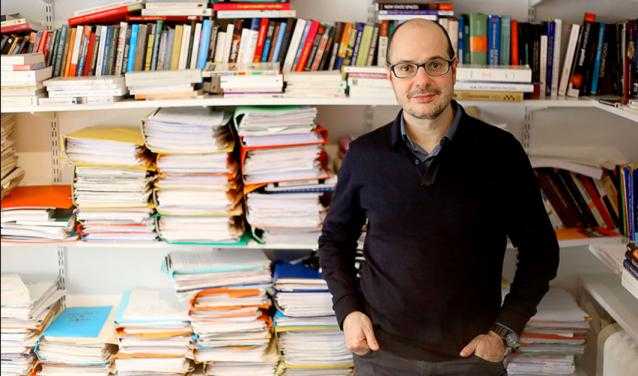Home>“TEACHING IS THE ESSENTIAL COMPLEMENT TO RESEARCH”

07.12.2016
“TEACHING IS THE ESSENTIAL COMPLEMENT TO RESEARCH”
Philippe Bezès, researcher at Sciences Po, talks about the job of an academic.
What led you to a career in research?
Obviously it was the result of a series of experiences; you're not born an academic, you become one. Moreover, it requires an effort to remain a "researcher" throughout your career. I have always loved reading the humanities and social sciences. I have also always enjoyed writing. Those are the basics. However, the first part of my higher education—a business school course—did not point me toward an academic career. It was there that I learned I wasn't made to work in business. But I was lucky enough to meet an iconoclastic professor, Jean-Gustave Padioleau, who introduced me to the social sciences. In parallel, I was dipping into lots of things and I had started on a course in political philosophy. Again, professors such as Etienne Balibar and Michel Senellart had a deep effect on me. I went on to take the Sciences Po graduate programme in the sociology of organised action, which gave me a leg up into empirical research.
Which aspects of your job as an academic researcher came as a surprise?
There are many things you don't expect because the job of an academic is not very formalised. The first surprise for a young academic is the immense independence and intellectual freedom they have. But you quickly discover that this inestimable chance is also a responsibility and requires a lot of self-discipline. Over the years, the other surprise comes from the sheer diversity of activities involved. In any given week, you might prepare a course, teach, do fieldwork, supervise a collective project, participate in a board of examiners for a PhD, do some serious reading, write an article, review a colleague's work, mark exams, edit a journal, moderate a debate or seminar, and take part in a symposium or a meeting of experts. You might also head up a laboratory, coordinate a degree programme and, like everyone else, take care of administrative tasks.
Another thing I discovered was that this job meant travelling, whether for research in the field or to participate in academic events that enable fascinating encounters and exchanges with colleagues. It's one side of the job that I didn't expect and which adds to its appeal. However, juggling all these activities at once isn't easy and one or other of them can suffer. That's the delicate balancing act of the post-modern condition of academics, which increasingly threatens their independence and their research time. Cheerful willing servitude can turn into unwanted servitude and burnout. In the midst of all these activities, you have to know how to keep on track.
How do you relate your research and your teaching?
Teaching is the natural—or rather essential—complement to research. First of all because it forces you to constantly reinforce and update your knowledge, and to set out your ideas clearly in an educational form. It means you have to take lateral approaches to adapt to different groups of students and find different ways of presenting your research and findings. Teaching is also enriching and stimulating because it’s nourished by students' questions, ideas, judgments and criticisms. All in all, teaching is just as demanding as research. And again, you have to find a balance.
Related link